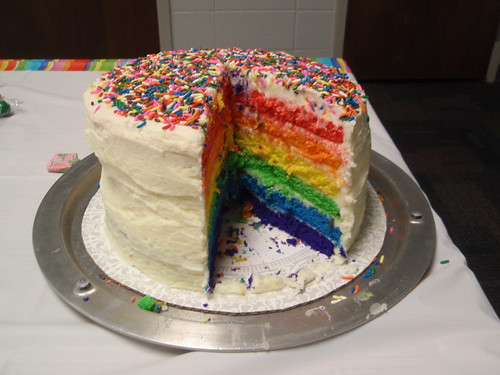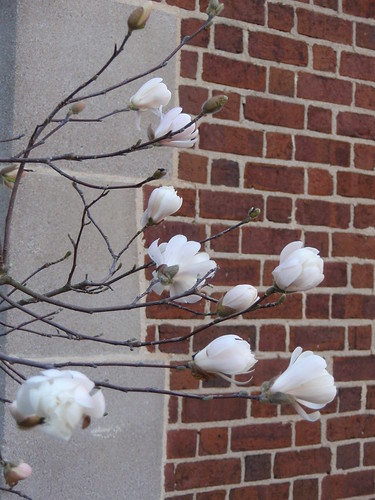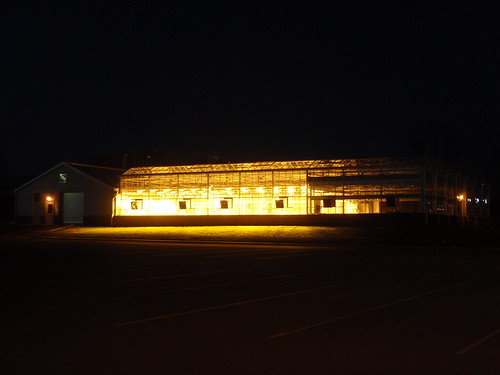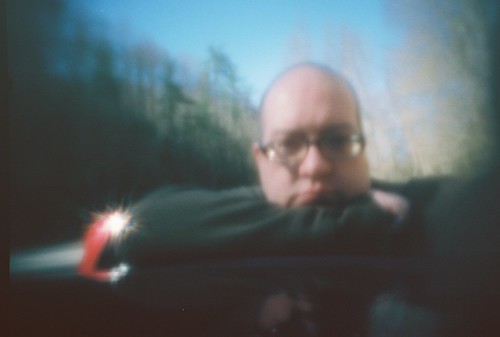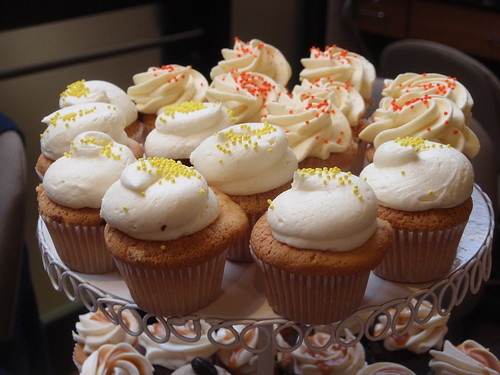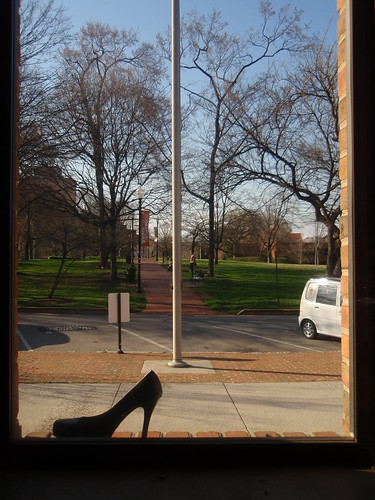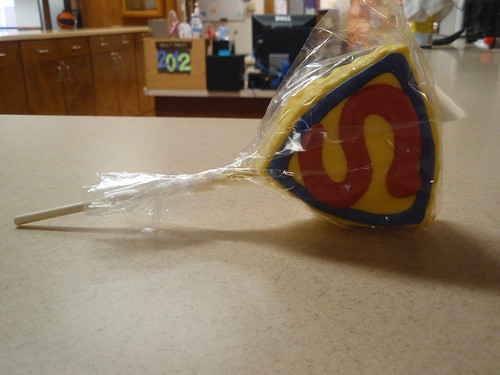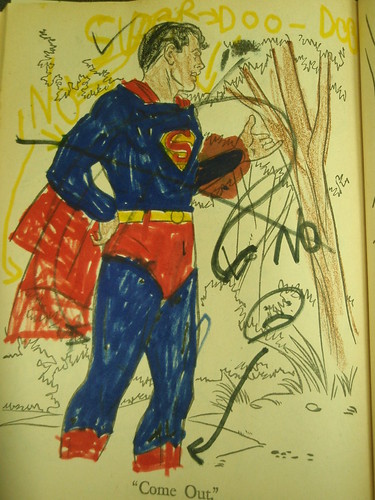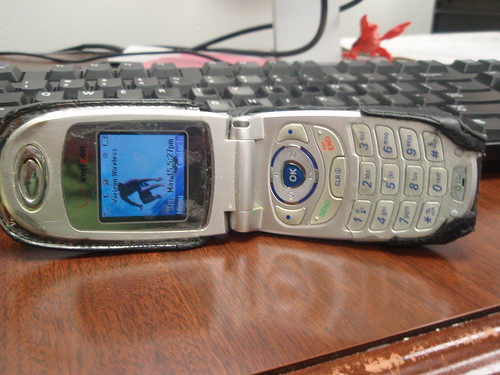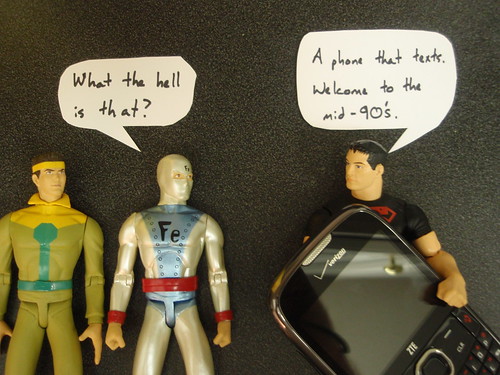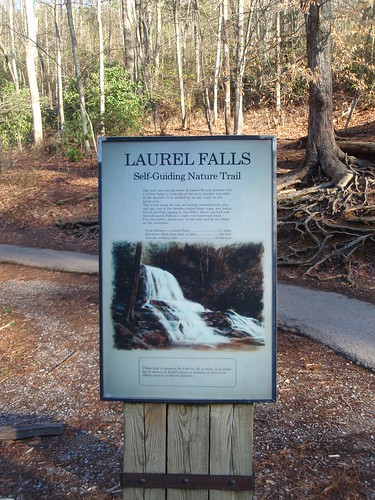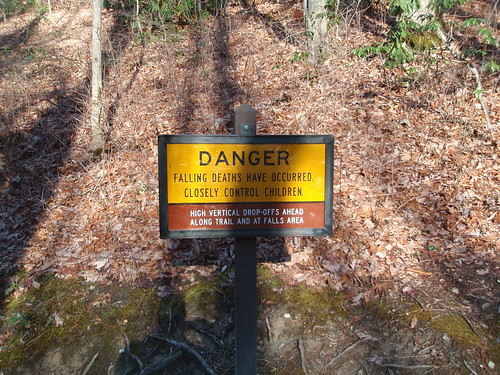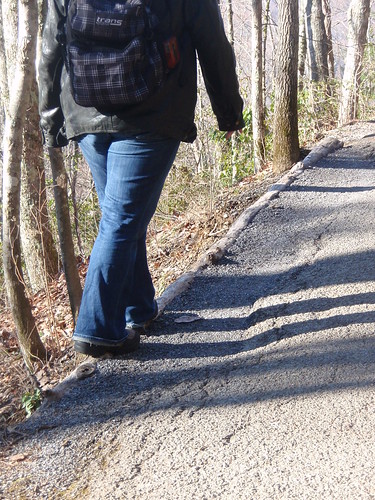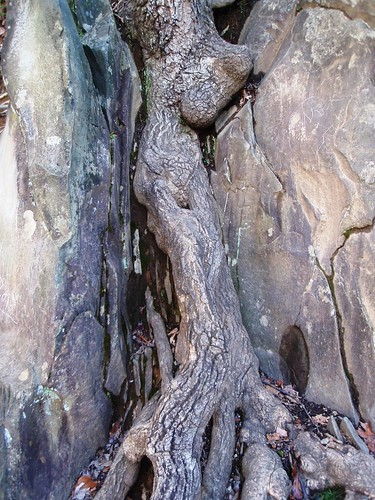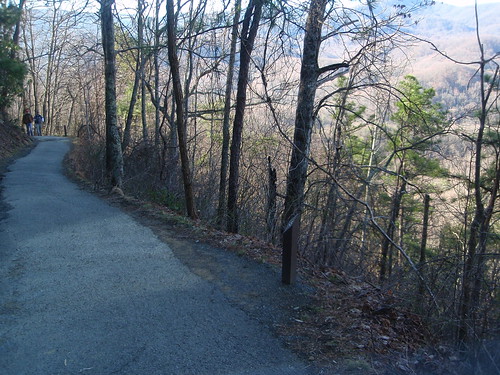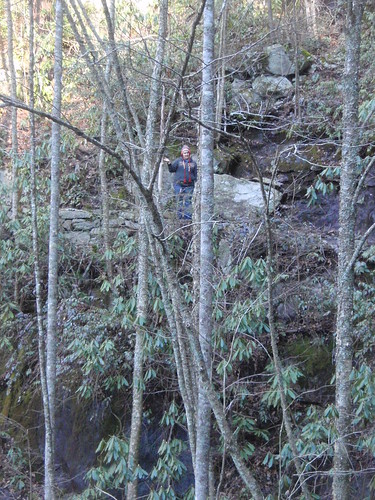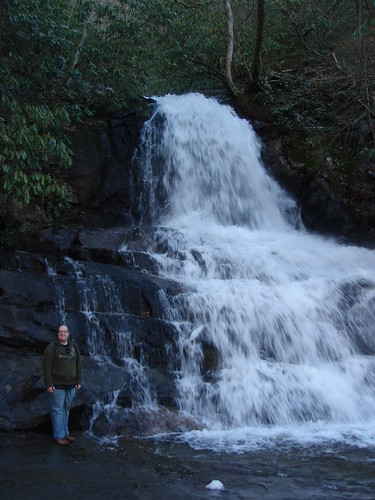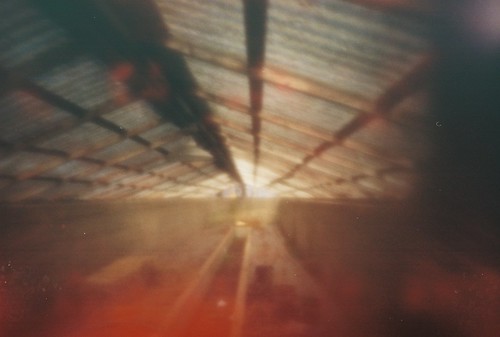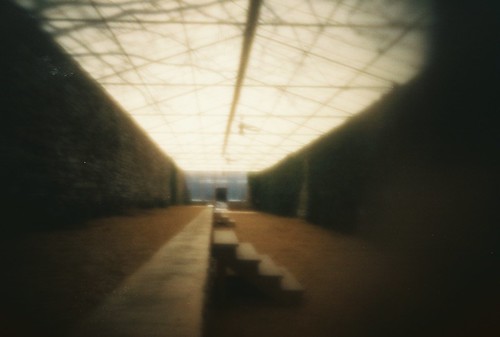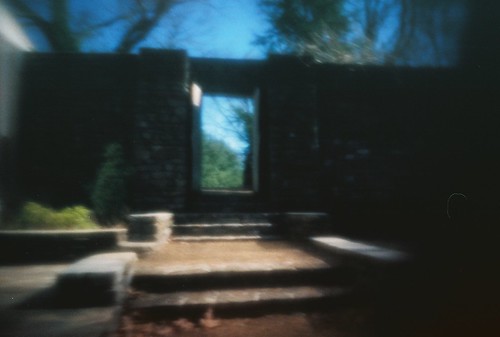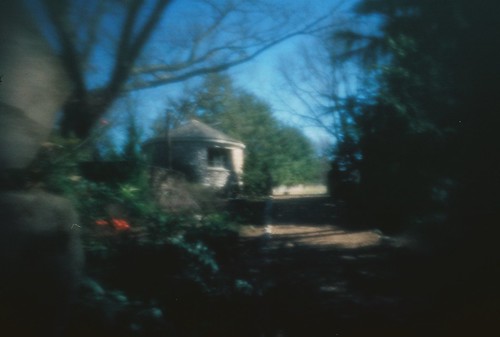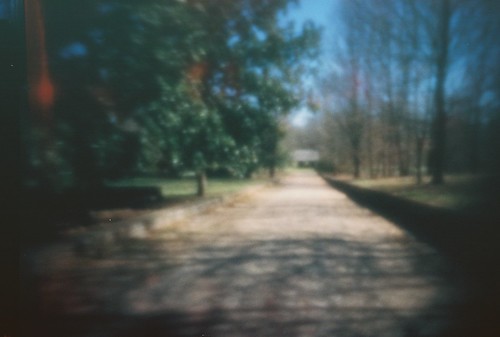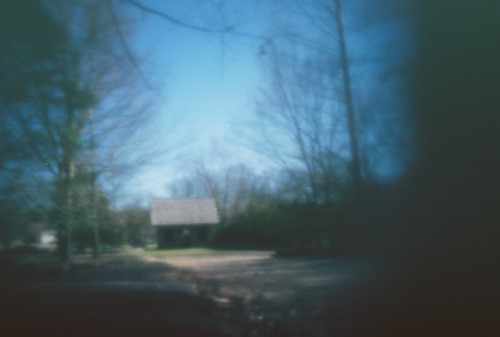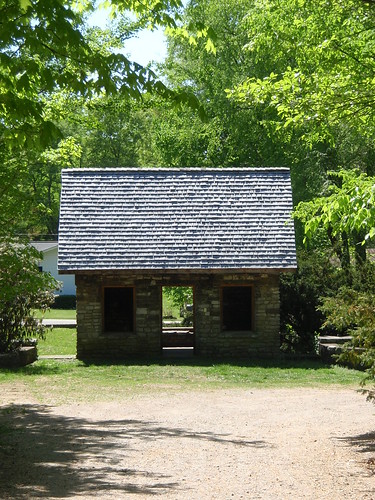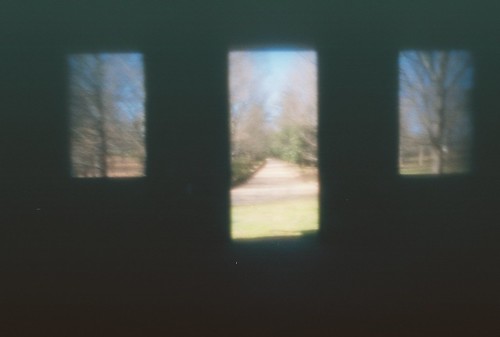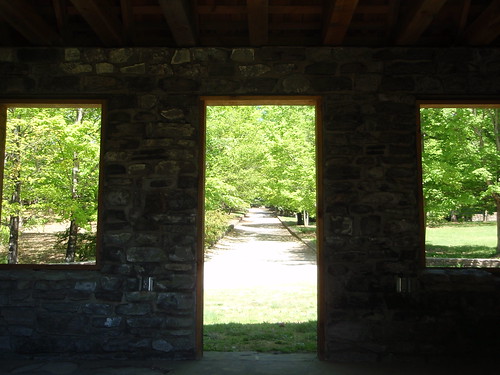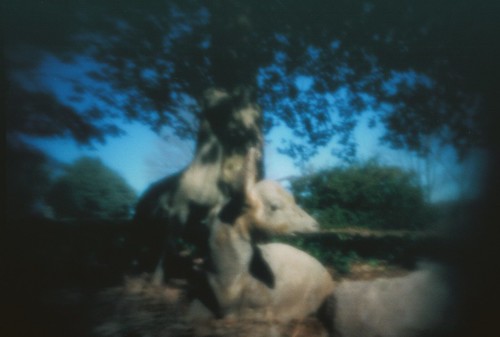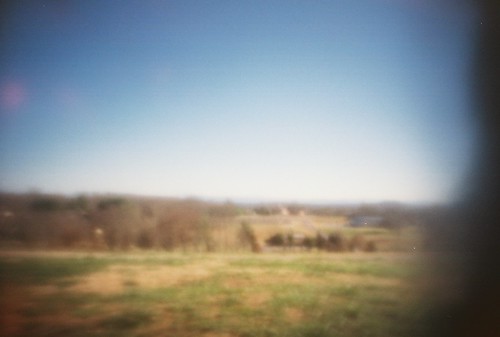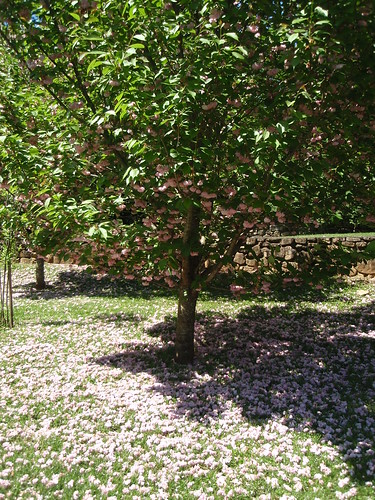People who know me know that I
tend to read a lot, and that there's really no pattern to most of the books that I pick up. If I'm reading an article or a book review online and the book sounds interesting, I go stick it on my wish list on Amazon and eventually pick it up, receive it as a gift, or look at it months later and decide that I'm not really interested in that anymore and remove it from the list.
At some point in 2011 that process landed Barbara Bisantz Raymond's
The Baby Thief on my reading list, and I picked it up after Christmas when I used my accrued birthday and Christmas gift cards to pick up a bunch of things that I didn't get for Christmas or my birthday. It was a good book, and tells the story of Georgia Tann, a woman working out of Memphis who took over the Tennessee adoption system and became an adoption broker for the whole country. Through a network of judges, police, social workers, legislators, and famous people (she sold kids to Joan Crawford, Pearl Buck, and June Allyson and Dick Powell, among others) she seized children legally and through kidnapping, and sold over 5000 children in all 50 states before her death from cancer. Even then, the state waited until after she was dead to briefly expose and then immediately cover up her crimes.
The book does a really good job of pointing out how orphaned children were viewed completely differently in the early 1900's than they are today, and how adoption has changed. Back then, you could pick up a couple of orphans to work on your farm in exchange for room and board, or get one to live in your house as a servant for your family, and nobody thought that this was really horrible because hey, nobody wanted those kids anyway and at least you were saving them from a long slow death in poverty and starvation, right?
What I found really interesting, though, was a one paragraph mention of the University of Tennessee, where the author mentioned reading an article about an orphaned baby that the students in the College of Home Economics were raising as a "living textbook" in the Home Economics "Practice House", in 1929. They named the baby Richard P. House, the P standing for Practice, and took turns being his mother.
Let that sink in for a minute, and think about how much college has changed.
Now imagine a group of college students raising a baby in a house on campus. It's like a recipe for a sitcom with a smattering of
The Truman Show thrown in, except that it really happened, on our campus. And not just our campus. While looking into this, I discovered that "practice houses" were really common on campuses that had a Home Economics program, and that a lot of practice houses adopted a baby for a semester or a year, then had the baby adopted out to permanent parents, and this was all a totally normal and accepted part of a Home Economics college education.
I mentioned this to a few friends and colleagues on campus, and nobody had ever heard of this. The idea that, for however short a time, our university had adopted a baby and let students raise it was a complete surprise, and a few found it hard to believe. Intrigued, I contacted my friend Donna, who works in the library, with possibly the dumbest question I've asked lately:
Donna,
I’ve never used the library here for research, and haven’t really done library research since grad school. Are there people over there who can help me find things? And do they work on the weekend?
(I feel totally dumb asking this.)
Yes, I need help using the library. The only times I've used the library here on campus are to go to Starbucks or to look books up in the online catalogue and then ask for someone to send them over to my office. I feel like a guy (who will remain nameless) I knew my senior year of college who was also a senior and had never been in the library, except that I at least have the good sense to be ashamed of my ignorance. Donna, who works in Library Research, offered to help, and the library research staff produced an amazing amount of information in less than a week with only
this article citation as a starting point.
It turns out that the University had not one, but at least four of these babies. We also had multiple practice houses at different times, located all over campus. At one point, there were even two practice houses at once: the regular one and a second one on Temple Avenue, and each of them had a baby!
As for Richard P. House, the baby referenced in the book, the research staff found a few interesting items. There was a note in the minutes of a Board of Trustees meeting in the 1920's giving permission for the College of Home Economics to "procure a baby to aid in the training of students in infant care", as if they were just going to order one from the Staples catalogue along with pens, paper, and office supplies. There was also a note that after living in the practice house for almost a year Richard was adopted in December of 1929, which would have been right after the article about him, and then the last time he seems to appear in university records is a letter to the university president in 1948, saying he graduated from Stanford.
The University of Tennessee raises Ivy League babies, apparently.
The adoption records for all of the babies were sealed by the Knoxville Juvenile Court, so you'd really have to dig for more information, but I still wondered about the practice houses. Where did they go? Was there any trace of them left on campus? We no longer have a College of Home Economics, but the building was renamed, and became the Jesse Harris Building:

The practice houses were a little more difficult to track down, though. Since there had been so many, there didn't seem to be clear, easily accessible records on where they had been located. There was that mention in one of the articles that the research staff found about a second house on Temple Avenue, but mapquest says there isn't a Temple Avenue in Knoxville anymore, and none of my friends on campus seemed to know exactly where Temple Avenue would have been, although we all agreed that it would probably have been on or near campus. My friend Tom pointed out that there is a building called Temple Court and suggested a link, and then Tom and Kay suggested I try looking for older maps of Knoxville at the Map Library, so after work the other day I did.
While the librarian there was searching for older maps of the city, I noticed a large display map on the wall:
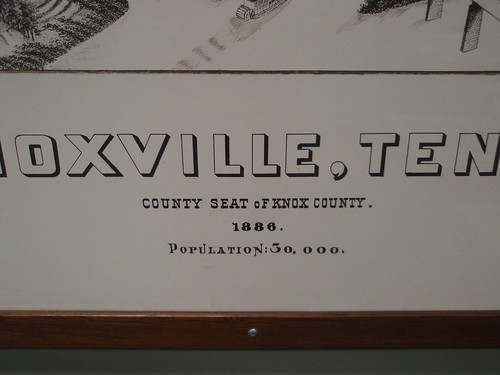
and, looking in the area where campus is now, saw this:
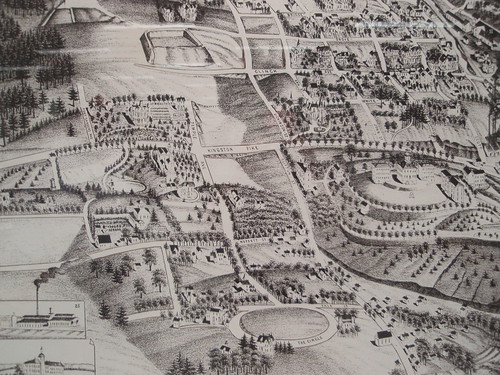
Temple Avenue.
"Hey, I found it. It's on this map on the wall."
I'm including this quote because it's one of the only parts of the story where I actually discovered something myself. I take pride in my achievements, however small.
Armed with an approximate location and a clear link to campus, I discovered via Google that Temple Avenue does still exist and that, as Tom guessed, Temple Court sits on it:
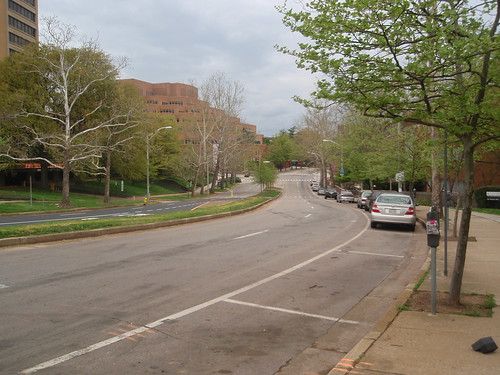
It's Volunteer Boulevard, the street in front of my office. It was, literally, right in front of me the entire time.
There aren't any practice houses on that street, though, so I still hadn't answered my question, so I went back to the library to talk to the research assistant. In searching the archives, she located what seemed to be photographs of the practice houses. Since they are not digitized, I'd have to view the photographs themselves, and they were part of the Special Collections department. Armed with call numbers, I sent an email and scheduled an appointment to visit Special Collections:

It's just behind the centaur case in the library.
There are a lot of rules for viewing items in Special Collections, and you have to fill out a lot of forms. Most of the rules exist to protect the special collections from damage and theft, and I'm sure people who do a lot of research with rare books and stuff deal with this kind of thing all the time, but it's all kind of new to me, and the research assistant had cautioned me that I might even have to wear gloves to handle the materials. I didn't, but I was ready to.
There were photographs of the practice houses:
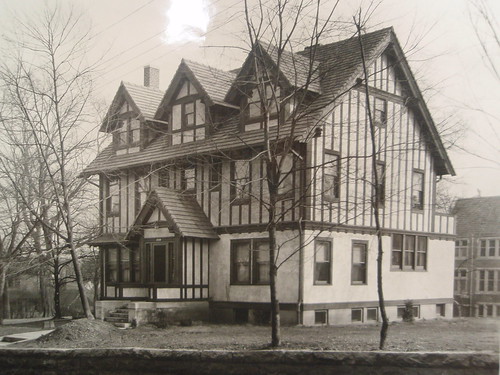
and a few photocopied news clippings with addresses for some of them. One sat on Laurel Avenue, where there is now a parking lot and power substation. Another sat on Melrose Place, in the footprint of the Baker Center. There was one promising photo, though:
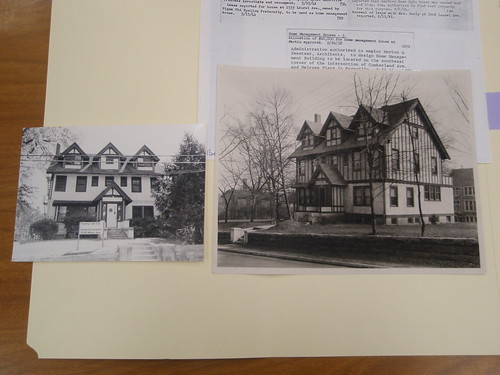
The picture on the left has a modern-era university sign in front, and gave the address as 1218 White Avenue. It's not still the practice house, but there was a fair chance that the building itself might still be there, so yesterday after work I informed Kristin that we were going for a walk, to look for the practice house.
We found the steps:
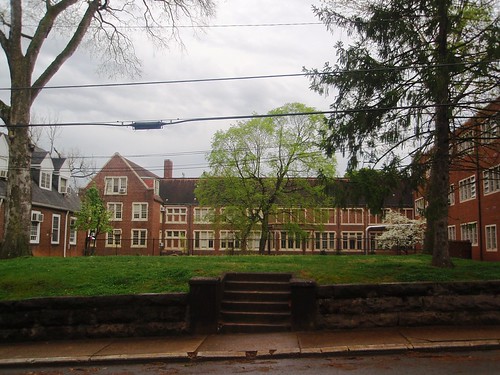
That's the vacant lot where the practice house used to be. While we were checking the addresses of buildings on either side, to make sure this lot was 1218, a university maintenance man happened by and told us that there had been a really nice house there, but it was torn down about ten years ago. Time marches on, and history erases things and leaves them buried.
It can be a little bit of fun, though, to spend a couple of weeks digging them back up.
